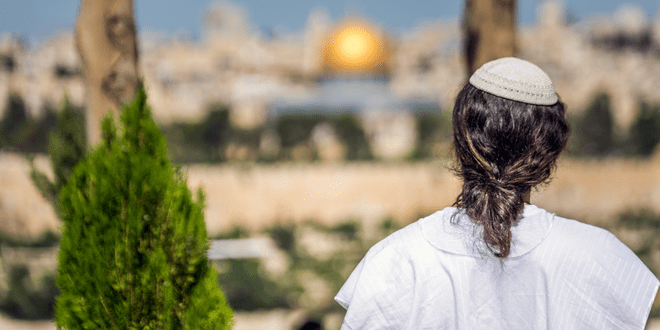According to a new survey by the Jewish People Policy Institute, the war against Hamas has catalyzed a spiritual transformation among young Israelis that defies decades of secularization trends. One-third of Jewish Israelis under 25 now observe more religious traditions than before the conflict, with prayer leading the surge at 38% among youth—a rate higher than any other age group.
The JPPI survey of over 1,200 adult Israelis reveals that 33% of Jewish youth ages 25 and under report observing more religious traditions since the war began. Among those who identify as “traditional, somewhat religious,” the number jumps to 51%. The breakdown is striking: 38% pray more frequently, 26% increased Bible reading, 14% attend synagogue more often, and 14% light Shabbat candles more regularly. Faith itself has strengthened, with 35% of young Jews saying they believe in God more than before the war, compared to 28% of Jewish adults overall.
The political shift mirrors the spiritual one. The percentage of Jews identifying as “hard right” jumped from 11% to 19%, while those identifying as “right” increased from 24% to 28%. The movement spans the political spectrum—approximately half of self-identified leftists and centrists report shifting to the right since October 7. Among those who were center-right before the war, 59% moved further right. Even among the center-left, 49% shifted right while only 11% moved left.
This dual transformation—religious and political—represents a unified response to existential threat. When Hamas breached the Gaza border fence and murdered 1,200 Israelis in a single day, it shattered illusions about peace through concessions. Young Israelis watching their friends called to reserve duty, attending funerals of soldiers their age, and sleeping in bomb shelters realized that Jewish survival in this land requires both military strength and spiritual fortitude.
The survey found an opposite pattern among secular Jews. While traditional and young Jews increased religious observance, secular Jews showed a decline in both practices and faith. Among secular respondents, 15% observed less than before, and 20% reported decreased faith in God. This divergence suggests the war didn’t create uniform change but rather accelerated existing trajectories—those connected to tradition moved closer, while those disconnected moved further away.
Notably, Israel’s Arab population also reported increases in religious practice, though less pronounced than Jewish increases. About 23% of Arab respondents reported strengthening observance of traditional customs, with 32% praying more and 37% reporting strengthened faith in God, higher than the Jewish increase. Political beliefs among Arabs, however, remained stable, unlike the rightward shift among Jews.
Hebrew University researchers noted that direct war exposure correlates with greater religious and spiritual engagement. Constant reminders of mortality through rocket attacks, media coverage, and military service push people to seek meaning in spirituality. The researchers explained that awareness of death creates existential anxiety, which people manage by clinging to cultural beliefs and worldviews that give life meaning and offer symbolic or literal immortality.
Dr. Shuki Friedman, the Vice President of the JPPI, acknowledged uncertainty about whether these changes represent a temporary wartime phenomenon or a lasting transformation. “Israel after the war is more traditional and more right-leaning. At this stage, it is impossible to know whether this is a passing trend, or a deeper and longer-term change,” he said. He characterized the shift not as rigid religiosity “but rather getting closer to tradition,” suggesting “Jews in Israel are becoming more traditional rather than more religious.”
The distinction matters. This isn’t about charedi Judaism conquering secular Israel. It’s about young Israelis recognizing that Jewish identity anchored in tradition provides resilience that abstract universalism cannot. When missiles target your home because you’re Jewish, asserting your Jewishness through prayer, Bible study, and Shabbat observance becomes an act of defiance and affirmation.




